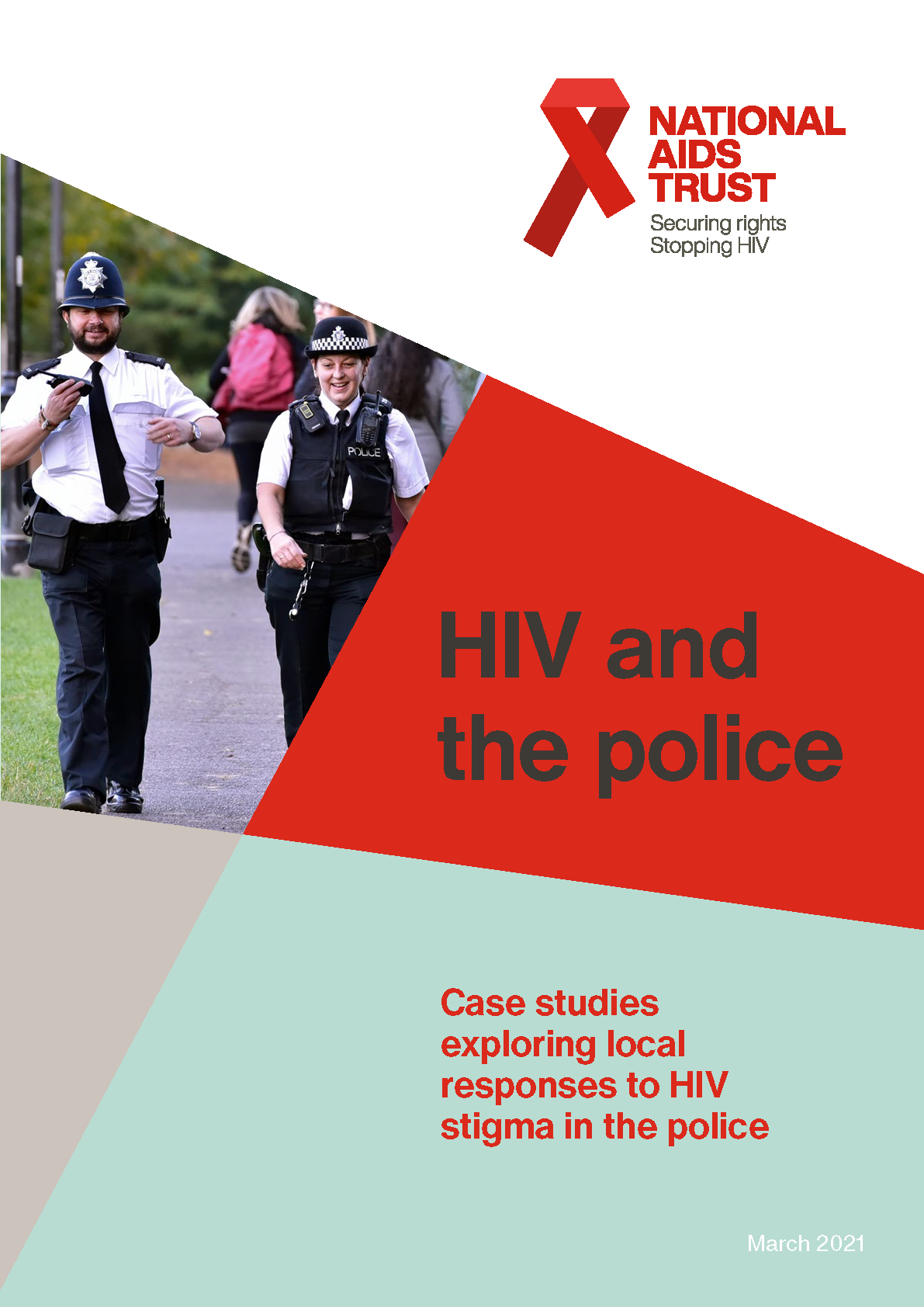HIV, the police, and the road to building trust

By Tamara Manuel, Policy and Campaigns Officer
One of the most powerful legacies of Channel 4’s ground-breaking drama “It’s a Sin” is that it shone a harrowing light on the failings of public institutions in the early days HIV. The stark depictions of the police responses to HIV and AIDS, based on real experiences, are particularly pertinent. One scene depicts police officers aggressively breaking up a protest for AIDS treatment and awareness in 1991, putting on plastic gloves before they did so. As much as anything, this scene shows the power an institution like the police force has to devalue people living with or affected by HIV.
A lot has happened since 1991 in HIV and in the police, but three decades later there are those in the police force who recognise there’s still work to be done to repair trust.
Today, National AIDS Trust publishes the report HIV and the police: exploring local responses to HIV stigma in the police force to address just this. It shows how two police forces, Merseyside and Avon and Somerset, have worked together with local community organisations, Sahir House and Brigstowe, to improve understanding of HIV and address HIV stigma.
The police has a role in the effort to reduce HIV stigma in the UK; without this we won’t reach our goal to end new HIV cases by 2030. Police officers interact with the public, including people living with or affected by HIV, every day. It is influential, with the power to not only feature in but heavily shape the news and media. What the police say about HIV and the way it treats people living with HIV is impactful. And people living with HIV working for the police have a right to a working environment free from HIV stigma and prejudice.
Poor HIV knowledge
Members of the police, much like the public, often have poor knowledge about HIV. Discriminatory or stigmatising behaviour is unfortunately still commonly reported alongside high levels of undue concern about risk of HIV transmission in the police.
We held roundtables with a mix of local police representatives, the Police Federation, National LGBT Police Network, and UNISON, as well as local HIV organisations Sahir House and Brigstowe, people living with HIV, and HIV clinicians.
These took a collaborative approach, providing opportunity for respectful conversations between stakeholders that identified what has and hasn’t worked in the past, and how we can learn from it.
Bristol-resident Andy Ray volunteers with Brigstowe and took part in the roundtables. He said the event was, “a good way to have an honest open conversation, plus I also felt that everyone was listened to.”
There has clearly been significant progress made since 2017 when local police in Avon and Somerset wrongly identified spitting as an HIV risk in press comments; something they later apologised for. Andy said, “I now feel like I can talk with the police more freely and they’re more willing to listen than they used to be.”
What needs to be done
 National AIDS Trust is calling for concerted action across the police force. The report’s key learnings and recommendations fall into four broad categories:
National AIDS Trust is calling for concerted action across the police force. The report’s key learnings and recommendations fall into four broad categories:
- leadership and accountability, including the importance of buy-in from senior officers to support initiatives and the benefits of appointing an HIV Champion
- accessible HIV training tailored to the police and involving people living with HIV
- effective communications on HIV, including the importance of considering and communicating about HIV as an equality issue, not just a health and safety issue. The need to ensure all internal policies and guidance about HIV are accurate and reviewed regularly
- improved data management and confidentiality. Someone’s HIV status is confidential medical information and should be treated as such. The report contains recommendations on how and when HIV should be recorded on databases and confidentiality in the context of investigations. Specifically, we’re calling for the removal and end of the use of HIV warning markers on the Police National Computer.
We want police forces across the UK to use this report to review their own practice on HIV and consider adopting the successful initiatives of Merseyside Police and Avon and Somerset Police to prevent HIV stigma and discrimination in their own forces. We want national police bodies and the Home Office to address data protection issues highlighted here urgently and to support a national roll-out of HIV guidance and training.
You can read the full report here.
Please also consider raising this issue with your local MP here.
This project was supported by funding from ViiV Europe.
Tamara Manuel is Policy & Campaigns Officer at National AIDS Trust. You can follow her on Twitter here: @tamaramanuel96


